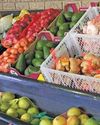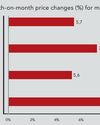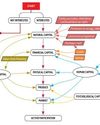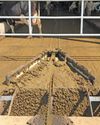
Unless assisted by a mentor and driven by a special interest in racing pigeons, beginners find the cost and other challenges of conventional pigeon racing near impossible to overcome. The South African National Pigeon Organisation (SANPO) has roughly 4200 active pigeon fanciers on record, with an estimated majority over the age of 50. Sadly, the South African pigeon racing scene has changed and the sport is running on empty. The question is whether privately owned One Loft Races, some with millions up for grabs, can provide some relief to keep the sport's flame alive in South Africa.
NO LONGER THE POOR MAN'S RACEHORSES
In the old days, pigeon passion and love for the sport of pigeon racing contributed to the collective sentiment at a social, people-friendly clubhouse. Racing pigeons, or homers as they were called, were referred to as the 'poor man's racehorses'.
In 1968, when my own interest in pigeon racing began, I remember that, with a few exceptions, fellow fanciers were from the lower- to average-income group, working at the mine or post office and other offices of administration. Our local barber was a pigeon fancier, and the club champion worked at the post office, while the runner-up club champion worked at the railways.
To practise pigeon racing from a garden loft in your backyard was always known to be reasonably expensive. However, one could save up and manage to meet the financial demands of pigeon racing without hurting your budget.
This story is from the July 05, 2024 edition of Farmer's Weekly.
Start your 7-day Magzter GOLD free trial to access thousands of curated premium stories, and 9,000+ magazines and newspapers.
Already a subscriber ? Sign In
This story is from the July 05, 2024 edition of Farmer's Weekly.
Start your 7-day Magzter GOLD free trial to access thousands of curated premium stories, and 9,000+ magazines and newspapers.
Already a subscriber? Sign In

Agripreneur wins top award for butternut coffee
Bloemfontein-based agripreneur Chantelle de Bruyn has achieved global recognition.

Final fresh produce inquiry pins low level of transformation on farming environment
The Competition Commission released its final report on the Fresh Produce Market Inquiry in mid-January, maintaining that transformation in the industry was being impeded by a lack of support for emerging farmers.

Illegal fishing in Australia reveals market gap for farmed sea cucumber
Illegal fishing practices in Australia have revealed a large market opportunity for sea cucumber farming.

An introduction to the Ford Ranger Tremor
In December 2024, the CAR magazine team received the Ford Ranger Tremor to accompany them through the festive season and into the new year. Oliver Keohane looks at what the Tremor is all about.

A farmer's experience with bush encroachment
Farmer David Addenbrooke has worked in the Zimbabwean beef industry for around four decades. Here, he relates his experience with bush encroachment and offers farmers some advice on battling this scourge.

Good rains boost SA's summer grain crop prospects
This week, Absa AgriBusiness analyses several market dynamics and shares its expectations for local grain and oilseed prices over the coming months.

A self-help tool for getting young people engaged in agriculture
The active engagement of the youth in agriculture is pivotal to the sustainability and growth of the sector. Empowering them with the necessary support is key to nurturing future farmers who are equipped to overcome future challenges like the effects of climate change.Dr Primrose Madende, researcher at the Department of Agricultural Economics at the University of the Free State

Rallying to the cackle of this raucous bird
The gregarious and territorial Green Wood-hoopoe, also known as the Red-billed Wood-hoopoe, is extremely vocal and is often heard before it is seen. And for very good reason,

SA coffee lovers can expect price increase
South African coffee prices are expected to spike sharply in the foreseeable future because of failed crops in the country’s main importing countries: Brazil and Vietnam.

Paving the way for a greener dairy industry
The dairy industry is often criticised for its environmental impact, but a new innovation called DESTiny aims to empower farmers to take control of their carbon footprints. Riana Reinecke, the tool's developer, explained to Glenneis Kriel how it works and how farmers can benefit from it.